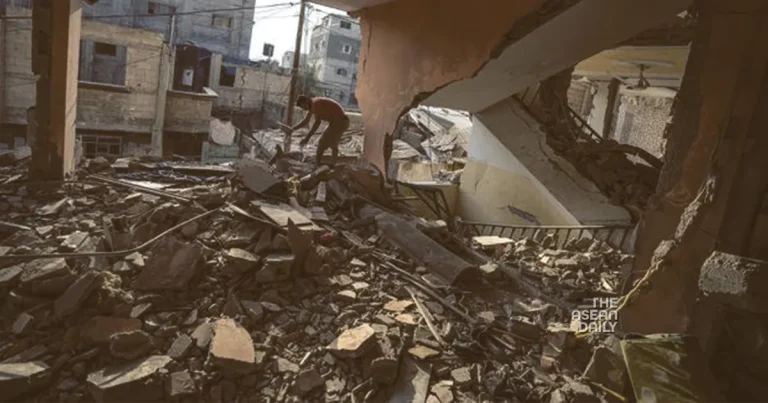5-11-2023 (JERUSELAM) Israel’s military offensive in Gaza to defeat Hamas has caused a division among the United States and its Arab allies. Despite mounting calls for an immediate ceasefire, Washington and Israel have resisted the pressure, citing concerns that a halt in the offensive would allow Hamas to regroup and launch further attacks.
Arab foreign ministers publicly urged US Secretary of State Antony Blinken to convince Israel to agree to a ceasefire during a press conference. However, Blinken dismissed the idea, stating that it would only benefit Hamas. Blinken is set to resume his Middle East trip on November 5, aiming to address the ongoing Israeli-Palestinian conflict.
The conflict began on October 7 when Hamas fighters crossed the border into Israel, resulting in the deaths of 1,400 people and the hostage-taking of over 240 individuals. In response, Israel launched air strikes, imposed a siege, and initiated a ground assault in Gaza. The humanitarian conditions in the enclave have raised global alarm, with Gaza health officials reporting over 9,488 Palestinian casualties.
Recent reports from Palestinian news agency WAFA indicate that an Israeli bombardment of Gaza’s Maghazi refugee camp resulted in the deaths of 51 Palestinians, primarily women and children. However, Reuters has not independently verified this information, and the Israeli military has not responded to requests for comment.
Despite growing civilian casualties, the United States and Israel have disregarded international calls for a ceasefire, instead proposing localized pauses. Israeli Prime Minister Benjamin Netanyahu rejected this idea after meeting with Blinken. Pro-Palestinian demonstrations demanding a ceasefire have taken place worldwide, including in London, Berlin, Paris, Istanbul, and Washington.
Jordanian Foreign Minister Ayman Safadi emphasized the need to end the war, stating that it would only lead to more pain and further deepen the cycle of hatred and dehumanization. Witnesses reported that Israel targeted Al-Fakhoura school in Jabalia, where evacuees sought refuge. The Israeli military claimed that the location was not intentionally targeted but suggested that the explosion might have been a result of fire aimed at another target.
Arab leaders have refrained from making comprehensive comments about the future of Gaza, emphasizing the need to focus on stopping the war and providing humanitarian aid. Concerns have also arisen over the escalating violence in the occupied West Bank against Palestinian civilians. Blinken voiced his concerns to Israeli officials, calling for the perpetrators to be held accountable.
The worsening violence in the West Bank has raised fears that the territory could become a third front in a wider conflict, in addition to clashes with Lebanese Hezbollah forces on Israel’s northern border. Meanwhile, Israel has encircled Gaza City in the northern part of the enclave, cutting it off from the southern region. Israeli forces continue to engage in fierce battles with Hamas fighters, with casualties reported on both sides.
As the death toll rises and calls for a ceasefire intensify, the Biden administration’s stance on the conflict remains uncertain. The situation in Gaza and the occupied territories continues to be closely monitored, with hopes for a resolution to the long-standing Israeli-Palestinian conflict.




